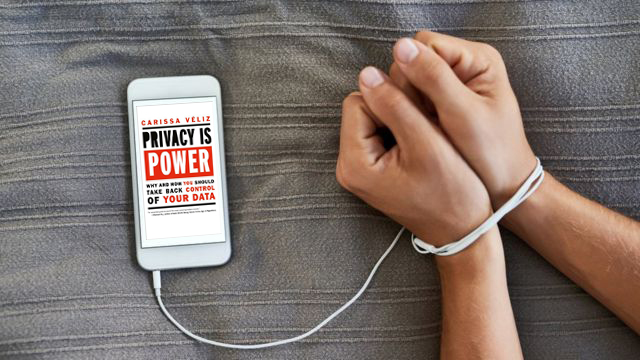A leap forward in AI ethics and safety
July 5, 2024

Carissa Véliz : The more I researched privacy, the more alarmed I grew about the state of our personal data. After six years of researching the topic, I felt confident that I knew enough to take a stand. We are at a crucial historical moment: the United States is discussing the possibility of a federal privacy law, Europe is discussing the ePrivacy regulation, China is quickly eroding privacy and trying to export its surveillance model… The time to act is now. The laws that we choose now will shape society for decades to come. Privacy Is Power is an urgent warning and a call to action.
C.V.: The book is not about myself and does not represent me, but here is an extract that encapsulates the flavour of the book:
Privacy matters because the lack of it gives others power over you.You might think you have nothing to hide, nothing to fear. You are wrong – unless you are an exhibitionist with masochistic desires about suffering identity theft, discrimination, joblessness, public humiliation, and totalitarianism, among other misfortunes. You have plenty to hide, plenty to fear, and the fact that you don’t go around publishing your passwords or giving copies of your keys to strangers attests to that.
You might think your privacy is safe because you are a nobody – nothing special, interesting or important to see here. Don’t underestimate yourself. If you weren’t that important, businesses and governments wouldn’t be going to so much trouble to spy on you
You have the power to lend your attention, your presence of mind. People are fighting for it. Everyone in tech wants you to pay attention to their app, their platform, their ads. They want to know more about you so they can know how best to distract you, even if that means luring you away from quality time with your loved ones or basic human needs such as sleep. You have money, even if it’s not much. Companies want you to spend your income on them. Hackers with extortion on their minds are eager to get hold of your sensitive information or images. Insurance companies want your money too, as long as you are not too much of a risk, and they need your data to assess that. Maybe you are part of the work force. Businesses want to know everything about who they are hiring, including whether you might be someone who will want to fight for your rights.
You have a body. Public and private institutions want to know more about it, perhaps experiment with it, and learn more about other bodies like yours. You have an identity. Criminals want to use it to commit crimes in your name and let you pay the bill. You have personal connections. You are a node in a network. You are someone’s offspring, someone’s neighbour, someone’s teacher or lawyer or barber. Through you they can reach other people. That’s why apps ask you for access to your contacts. You have a voice. All sorts of agents want to use you as their mouthpiece on social media and beyond. You have a vote. Foreign and national forces want you to vote for the candidate who will defend their interests. As you can see, you are a very important person. You are a source of power.
C.V.: An epic battle is going between defenders and attackers of privacy, and our democracies and ways of life depend on the outcome of that clash. If we are short-sighted and end up allowing profit considerations to prevail, we risk sliding into a kind of techno-authoritarianism, similar to the one China is brewing. If we want to protect our liberal democracies, we will have to start taking rights more seriously, and a business model that depends on the mass violation of the right to privacy is unacceptable. Fortunately, governments are realising that our current data practices (collecting as much data as possible, and storing it for as long as possible) are a huge risk to national security. My hope is that that will motivate them to improve our cybersecurity standards and ban risky data practices.
Other interesting trends are emerging in the field of AI. There’s the question of whether advanced AI will always need troves of data, or whether truly advanced AI will need much less data to function than current machine learning algorithms. The answer to that question will have huge implications for how we think about the value of data.
C.V.: Do not take freedom and democracy for granted. Democracy is not in its best moment, and it is the task of our generation to defend it and uphold it. Do not settle for injustice. In the words of Stéphane Hessel, refuse the unacceptable.
C.V.: I’m starting to work on the ethics of algorithms. In particular, the ethics of predictive analytics.
Thank you Carissa
Many thanks Bertrand
The book: Privacy is Power, Carissa Véliz, Melville House, 2021.